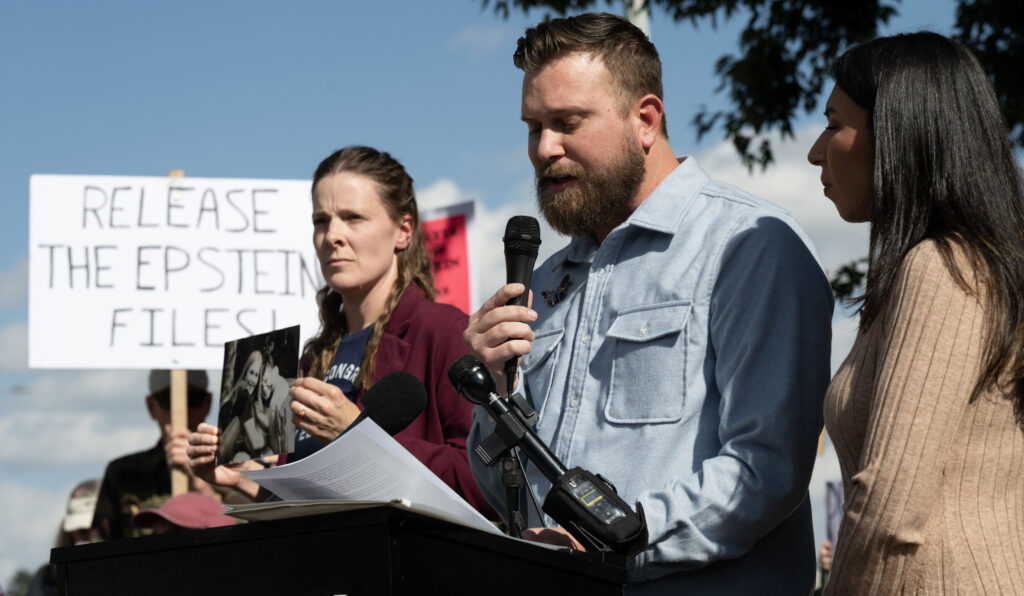Dem district chair chastises GOP congressman for voting against tax cut | A LOOK BACK

Sixty Years Ago This Week: The Democratic Party chairman of the 3rd Congressional District Central Committee, Paul Bechtol Jr., told reporters that Republican U.S. Rep. J. Edgar Chenoweth, had “once more voted against the best interests” of his constituents by opposing a bill that would have cut in federal income taxes.
“The economy of this country and particularly the economy of the 3rd Congressional District badly need the additional jobs that will result from the tax cut,” Bechtol said.
Under the proposed tax cut, families with dependents would see between a 20% to 33% tax decrease.
“The benefits of the tax cut program were clear to the Republicans who voted for the tax cut,” Bechtol said, “but Representative Chenoweth again chose to follow the party line laid down by the right-wing of the Republican Party.”
Forty Years Ago: Democratic U.S. Rep. Ray Kogovesk, CD-3, addressed what had become a political buzz phrase at the annual Jane Jefferson Convention: the gender gap, and reporters with The Colorado Statesman were there to cover his remarks.
Kogovesk argued that women had been tolerating second-class status because of President Ronald Reagan’s policies and budget cuts, but that these policies had inadvertently prompted a significant shift in the political climate.
“American women are thinking and voting differently than men,” Kogovesk claimed. “The difference is good news for the Democratic Party. Women voters are consistently more likely to identify with the Democratic Party and more likely to disapprove of Reagan and his policies.”
“The majority of women in this country work,” Kogovesk argued. “Despite the current myths … women work because they have to, because their income is needed to feed, clothe, house and educate their families.”
In 1983, women earned 59 cents to every dollar a man made. Women with college degrees earned $11,000 and men with the same degrees earned $23,000. Even at the age of retirement, elderly unmarried women’s average annual income was $2,500 and men’s $3,500.
Kogovesk stood so concern that, he said, by the year 2000, “women and children may well make up all of the nation’s poor.”
“The Democratic Party can and must take women seriously,” Kogovesk said. “As politicians we must earn the right to represent women. Please help us, pressure us, push us, remind us and demand that the Democratic Party live up to its potential.”
Thirty Years Ago: “We have guaranteed access to health care now,” said state Rep. Mike Coffman, R-Aurora, in reference to the Emergency Medical Treatment & Labor Act.
While Coffman agreed that “some insurance reform is in order” he didn’t agree that the Medicaid program of providing medical treatment for the poor should be scrapped as Gov. Roy Romer and ColoradoCare had suggested.
“We certainly need a safety net, and Medicaid may provide it,” Coffman said.
In 1991, Coffman co-sponsored Senate Bill 91-4 with Sen. Sally Hooper, R-Golden, which set up a study by the Governor’s Health Care Reform initiative that would culminate in a report on ColoradoCare proposals that would seek to offer health care to all Colorado residents, including 400,000 who didn’t have any.
Gov. Roy Romer said the plan was “absolutely essential if Colorado was to avoid a disaster in the making.”
The exact details of how Colorado’s new health care plan would be financed were not clear although Rep. Pat Sullivan, R-Greeley, believed he had the answer.
Sullivan, a doctor, twice sponsored bills to increase the tax on cigarettes and said he would try again in the upcoming session as a part of the health care reform bill.
“It all depends on Washington,” Sullivan said. “Clinton should be applauded for his efforts to boot the tax on smokes.”
Rachael Wright is the author of the Captain Savva Mystery series, with degrees in Political Science and History from Colorado Mesa University, and she is a contributing writer to Colorado Politics and The Gazette.














